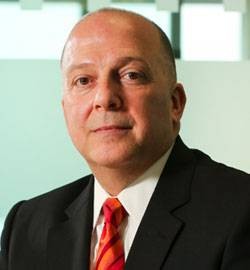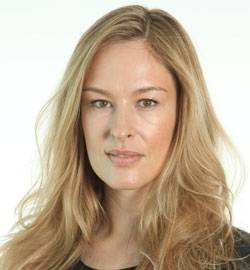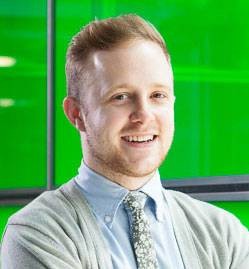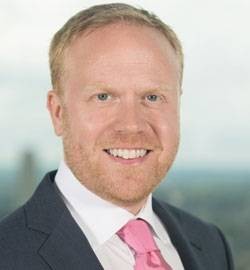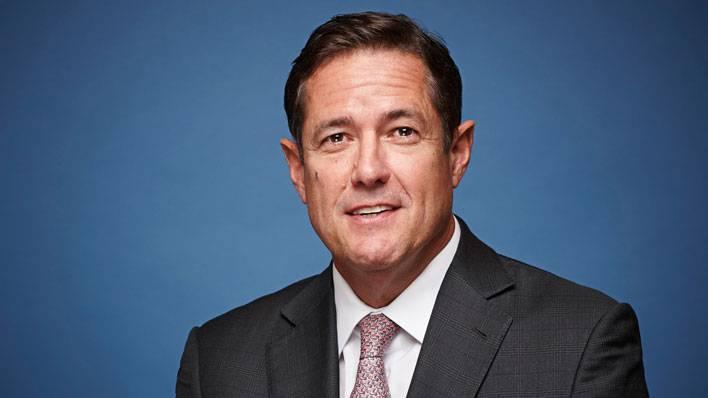
OUTstanding: meet the Barclays pioneers fighting for LGBT equality
Jes Staley, Barclays CEO, is among six employees honoured in a ‘power list’ that celebrates pioneers promoting workplace equality for the LGBT community.
The rankings, compiled by professional diversity network OUTstanding and the Financial Times, are divided into three categories: Leading LGBT Executives, Leading Ally Executives and Future Leaders.
The Barclays employees featured on the list are:
Leading LGBT Executives (senior role models who are helping to make the workplace a more welcoming place)
- Adam Rowse – Head of Business Banking
- Mark McLane – Global Head of Diversity and Inclusion
Leading Ally Executives (senior executives who are outspoken and unwavering in their support for LGBT+ people in the workplace)
- Jes Staley – Barclays CEO
- Rhian-Mari Thomas – Chief Commercial Officer, Barclaycard
Future Leaders (those making a significant contribution to LGBT+ inclusion at any level of an organisation)
- Kyle McQueen – Strategic Transformation Manager
- James Allan – Director, Cash Management, Corporate Bank
Jes Staley, who appears in the top 10 Leading Ally Executives, said: “Everyone should bring their whole self to work, each and every day, without fear of prejudice or discrimination. This is a key part of our culture at Barclays and I am delighted that OUTstanding has recognised Rhian-Mari, Mark, Adam, Kyle and James for their exceptional work.
“I am inspired by the example set by them, and indeed countless others across our business, in the name of workplace equality. There is plenty more progress to be made in this area and I want Barclays to continue to be at the forefront.”
Introducing our pioneers
-
![Adam Rowse]()
Adam has been the executive sponsor of Barclays’ employee network Spectrum (UK & Europe) for the past four years, becoming lead sponsor of Pride London and expanding Pride representation across the UK to more than 17 events.
No matter how much has been achieved, there will never be equality until there is no form of discrimination, whether known or unknown.
If you have a diverse senior leadership team and board, your company will perform better. We have millions of customers from different backgrounds – some have been born and raised in the UK, some are from outside the UK and some have disabilities so you need a workforce that reflects this diversity.
This is one of the reasons we try to make Barclays an inclusive and diverse place to work and to be personally recognised for playing a part in that feels great. Such awards continue to break down barriers – not just in terms of the LGBT community, but also ethnic minority groups and women.
But the job of promoting inclusion and diversity is far from done. No matter how much has been achieved, there will never be equality until there is no form of discrimination, whether known or unknown.
In the LGBT area, the next big issue will be around transgender individuals. We have been doing a lot of work in terms of the trans issue, but I think that is an area in which there is still progress to be made.
-
![Mark McLane]()
Mark is an active member of the OUTstanding leadership mentoring programme. He is also one of three founding members of the OutCenter – the first and only non-profit LGBT community resource centre in Benton Harbor, Michigan.
Being featured on this list proves that out LGBT individuals such as myself can aspire to very senior levels in London and across the UK.
Early in my career, I wasn’t out at work, but I was personally. Having previously worked in manufacturing, I did not feel comfortable being out in the workplace for many years.
But being recognised on this list shows that individuals such as myself can aspire to very senior levels in London and across the UK. It is also proof of Barclays’ commitment to supporting colleagues in their efforts to step forwards as future role models in inclusion and diversity.
On a professional level, there is a clear business case for diversity and not just in the LGBT area – from initiatives such as talking ATMs to the fact we now have British Sign Language interpreters available via iPad.
Barclays was also the first bank to have a gay couple in our retail banking advertising and the first to have a transgender colleague as part of our advertising for London Pride.
What’s next? The work that needs to be done depends on where we are talking about in the world… and being a global organisation, we must think on a global, regional and local level because the challenges around diversity and inclusion are societally different within each culture.
Despite the changes our industry has been through, one thing that has remained constant is Barclays’ commitment to diversity. It is because of this that I can say how proud I am of Barclays and our colleagues.
-
![Rhian-Mari Thomas]()
Rhian is the senior co-sponsor of Barclays’ LGBT network, Spectrum, and sits on Barclaycard’s Diversity Council. She is also chair of OUTstanding’s programmes committee.
The proudest moment of my career was when I was invited to London Pride and there were people in the crowd holding up their Barclays credit and debit cards.
Having been involved in supporting our gender diversity efforts for many years, I had thought I was very well informed on the subject of inclusion. A few years ago, however, I went to an unconscious bias training session, where a colleague shared a story that had a profound impact on me. He had offered a member of his team a fantastic opportunity to work overseas, but was then left questioning why that colleague showed such a lack of enthusiasm in accepting the role, to the point of reconsidering whether the junior man was ready for such a promotion. Eventually his colleague with whom he had worked for many years built up the courage to say “I am really sorry, I can’t accept the job because I am a gay man. My partner and I can’t live in a country where we can’t live as a couple.”
I immediately joined the Spectrum network as an ally, realising that I was sadly ignorant of the challenges some of our colleagues face. I believe intolerance and oppression against any group of people impacts all of us. If we work in an organisation in which we turn a blind eye to prejudice, be that homophobia, transphobia, sexism or racism we all suffer.
I am proud to be on this list, but perhaps the proudest moment of my career was when I was first invited to join colleagues at the London Pride parade and I saw people in the crowd holding up their Barclays credit and debit cards to thanks us for the support we are providing as an organisation to the LGBT community – it made me proud to have built my career at Barclays.
Inclusion is not just about diverse thinking, but also about reflecting your customer base, maximising your talent pools, and in the specific case of LGBT colleagues, encouraging them to be themselves at work without fear of prejudice.
-
![Kyle McQueen]()
Kyle is a co-founder and co-chair of Emerge, Barclays’ Early Career Network focusing on millennials in the workplace. He has led diversity training for graduates and was responsible for the regular communications to more than 2,000 UK members.
Diversity isn’t just about the LGBT community.
You don’t take part in inclusion and diversity initiatives because you want to be nominated for an award, but because you believe in the cause. There are so many colleagues within Barclays who give their time to these initiatives.
With the OUTstanding list, it’s great to see the company I am in with the other nominees. It’s a real learning experience to see what other people are doing and how they are contributing to LGBT topics.
And diversity isn’t just about the LGBT community, which is why I am also focused on the multi-generational agenda via the Emerge Network.
Individuals can make a real difference without necessarily having direct access to resources. For me, anyone can make a contribution and more can be done to recognise that change can originate from anywhere within a business.
-
![James Allan]()
As co-chair of Barclays Spectrum, James leads on activity with colleagues, clients and communities. He is a regular speaker at LGBT events, including Radius.
By actively building diversity into your community, you can create a more inclusive workplace.
It is important to make colleagues feel safe and happy in terms of where they work. You start by looking at diversity (be that gender or the LGBT community) and ask “how do I create a more rounded workforce?”, then you move to inclusion and ask, “what am I going to do to make colleagues feel more welcome here?”
It’s important to remember that diversity and inclusion are different things: successful businesses are made up of a more diverse workforce, but this is the precursor to creating an environment in which everyone feels more included because you have a better representation of colleagues from different backgrounds.
By actively building diversity into your community, you can create a more inclusive workplace – which is the real thing we are looking to achieve.
This year was the first time we have thought about how to externalise the great work Barclays has achieved in terms of diversity for the benefit of our corporate clients. We have identified those clients who would benefit from having a conversation with us on diversity such as Compass Group, Marks and Spencer, AXA, Ticketmaster and VISA.
For example, Marks and Spencer was looking to start an LGBT employee network so we spent some time understanding the approach the company would like to take, the brand of the network and how to go about gaining senior leadership sponsorship.
The client was very clear with us that it wouldn’t have made progress so quickly without the support and guidance we’d given them.

